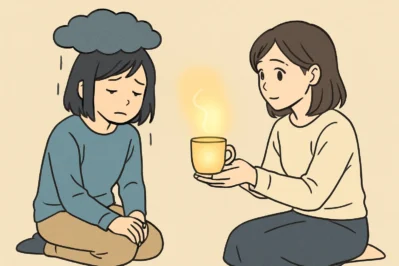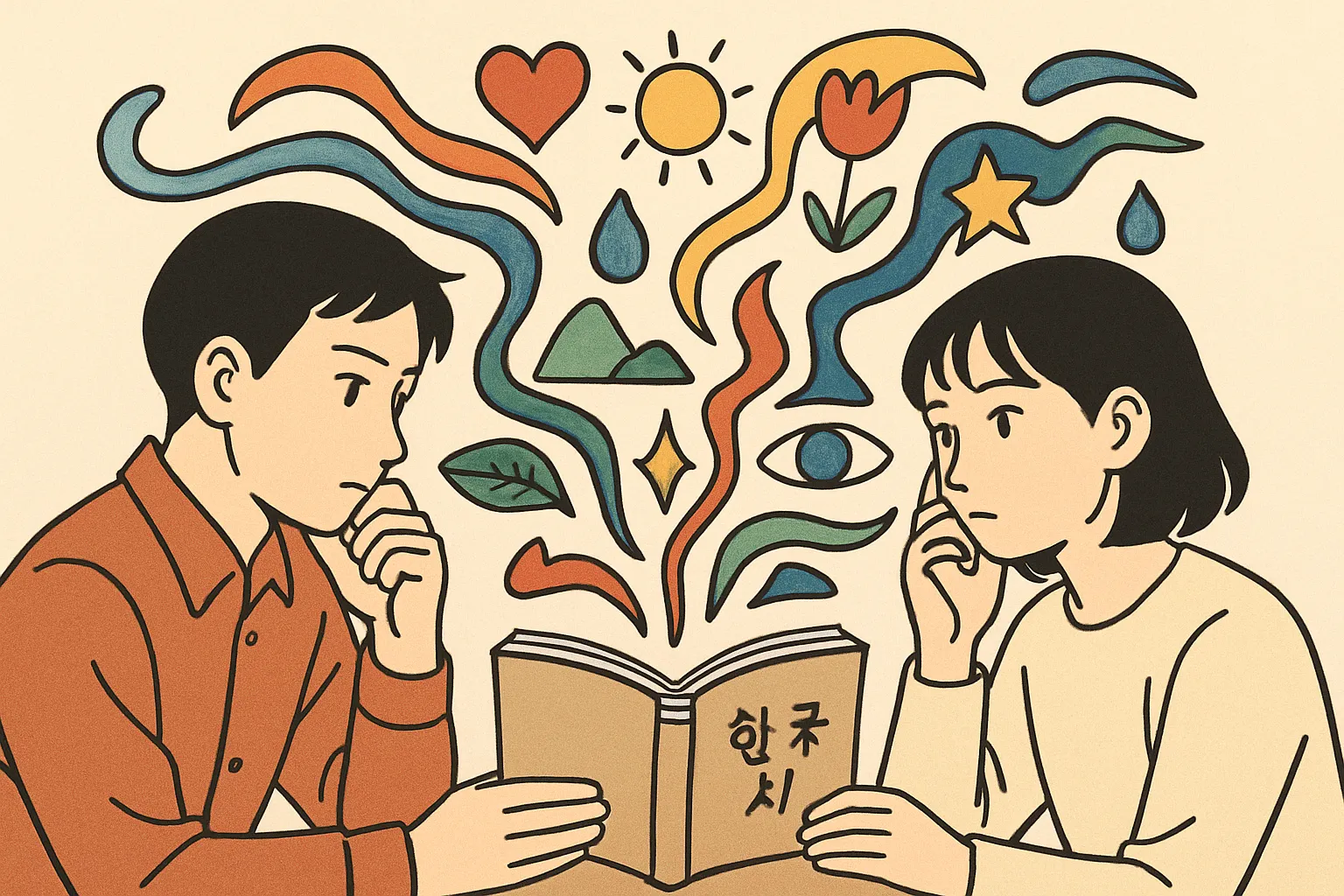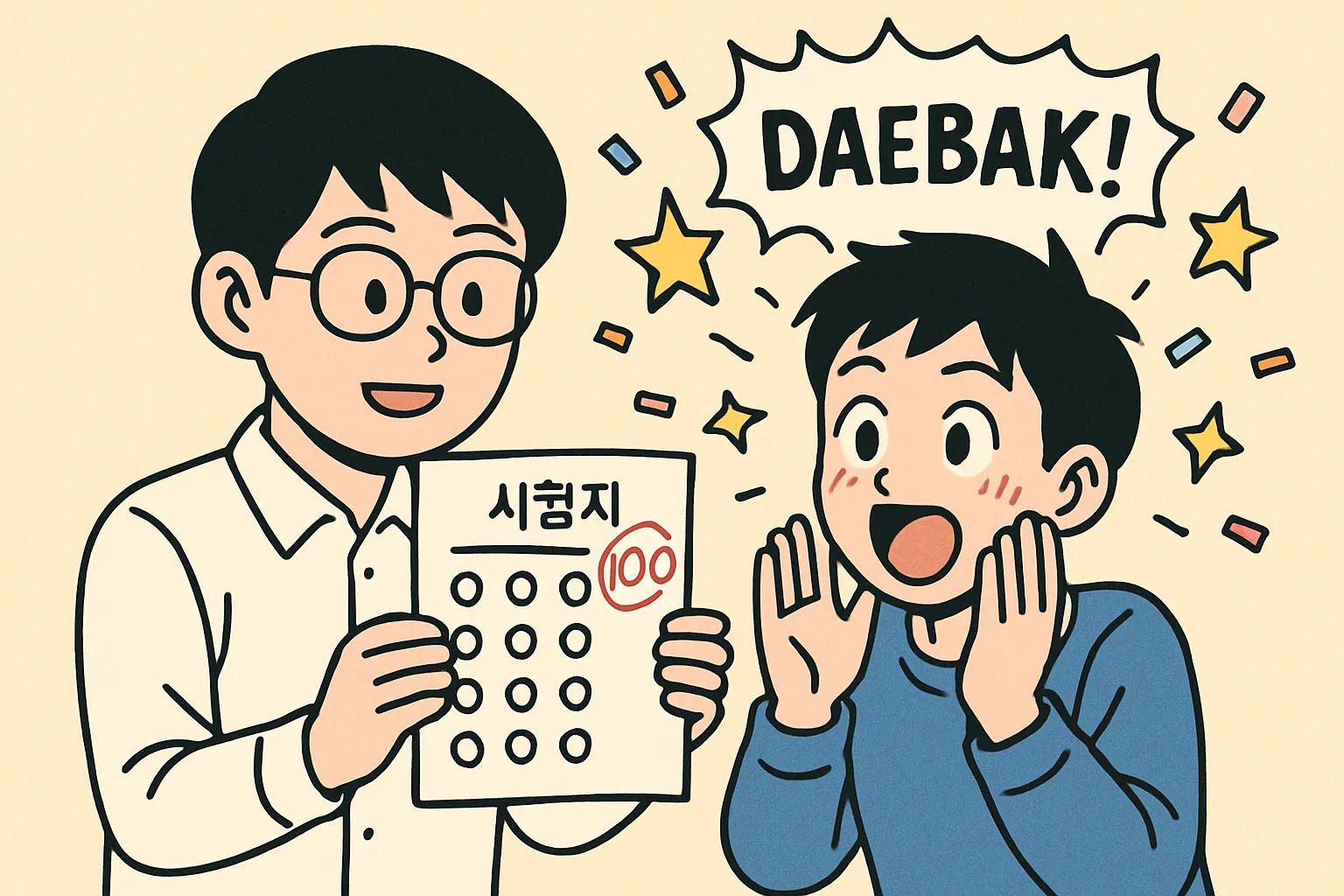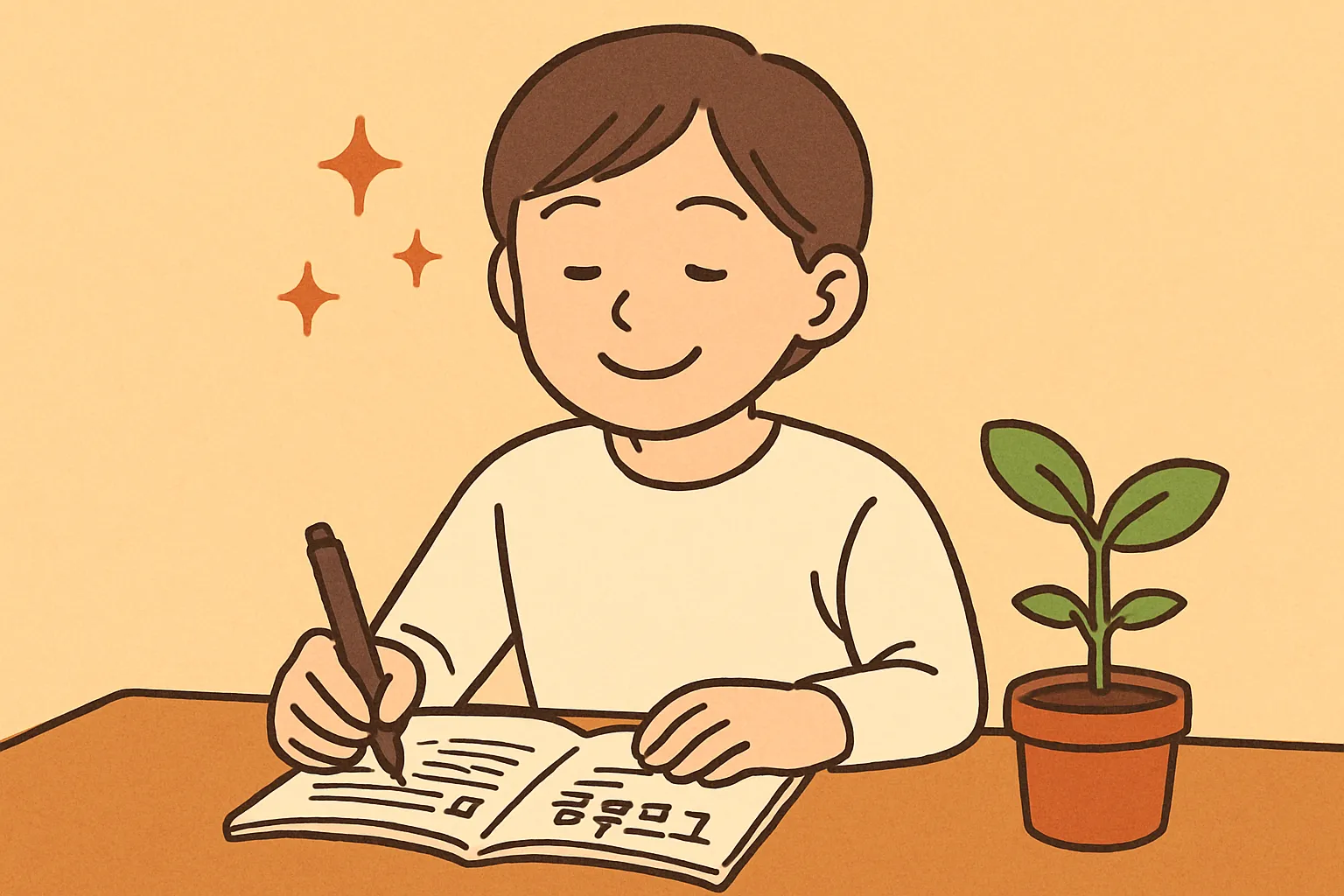More Real Than a K-Drama! How to Give Relationship Advice in Korean
Hello! This is Maeil Hangeul (매일한글), here to upgrade your Korean skills! 😊
Have you ever had a friend going through a tough time with their partner? You want to be there for them, but you’re not sure what to say in Korean. Don’t worry! Today, we’re going to learn how to listen with empathy and give thoughtful advice, just like a true Korean friend.
Lately in Korea, dating shows like Single’s Inferno (솔로지옥) and Heart Signal (하트시그널) are incredibly popular. While the drama on screen is entertaining, the real-life relationship problems of our friends are what matter most. Let’s learn the essential phrases to help them navigate the ups and downs of love!
Core Expressions for Your Advice Toolkit
Here are four key phrases that will make you an amazing listener and a supportive friend.
1. 그랬구나… (Geuraet-guna…)
- English Meaning: “Oh, I see…” / “So that’s what happened…”
- Detailed Explanation: This is the ultimate active listening phrase. It’s much more empathetic than just “아, 그래요 (Ah, geuraeyo).” The
~구나ending shows that you’ve just realized or understood something new. It tells your friend, “I’m hearing you, and I’m processing what you’re saying.” It’s an informal phrase perfect for close friends.
2. 힘들었겠다. (Himdeureot-getda.)
- English Meaning: “That must have been so tough.” / “You must have had a hard time.”
- Detailed Explanation: This is a powerhouse of empathy. The grammar
~었/았겠다is used to express a strong assumption or guess about a past situation, often with compassion. Instead of just stating a fact, you are showing that you are imagining how difficult the situation was for your friend. It’s a verbal hug!
3. 네 마음 다 이해돼. (Ne ma-eum da ihae-dwae.)
- English Meaning: “I totally understand how you feel.” (Literally: “Your heart/mind is all understood.”)
- Detailed Explanation: While
이해해 (ihae-hae)means “I understand,”이해돼 (ihae-dwae)feels more profound. It implies that their feelings are naturally and completely understandable to you. It validates their emotions and makes them feel seen and heard.
4. 나라면 ~했을 것 같아. (Na-ramyeon ~haesseul geot gata.)
- English Meaning: “If I were you, I think I would have…”
- Detailed Explanation: This is the perfect way to offer advice without being too direct or pushy.
나라면means “If it were me,” and~했을 것 같아means “I think I would have done…”. This structure softens your suggestion, presenting it as a personal perspective rather than a command. It shows respect for your friend’s autonomy while still offering your help.
Sample Dialogue: A Friend in Need
Let’s see how these expressions work in a real conversation. Bora is upset with her boyfriend, Minjun.
- A (Bora): 민준이가 어제 연락 한 번도 없었어. 우리 ‘솔로지옥’ 마지막 편 같이 보기로 했는데… 너무 서운해.
- Minjun didn’t contact me at all yesterday. We were supposed to watch the ‘Single’s Inferno’ finale together… I’m so upset.
- B (You): 그랬구나… 약속까지 했는데 연락이 없었어? 정말 힘들었겠다.
- Oh, I see… You even had plans, and he didn’t contact you? That must have been so tough.
- A (Bora): 응. 내가 너무 예민한 건가? 근데 그냥… 화가 나.
- Yeah. Am I being too sensitive? But I’m just… angry.
- B (You): 아니야, 네 마음 다 이해돼. 서운한 게 당연하지. 나라면 일단 무슨 일이 있었는지 솔직하게 물어봤을 것 같아.
- No, I totally understand how you feel. Of course you’re upset. If I were you, I think I would have started by frankly asking him what happened.
Culture Tip & Trend Deep Dive
In Korean culture, showing empathy and maintaining 정 (jeong)—a deep, emotional connection—is crucial in friendships. Simply offering a solution isn’t always the best approach. The first step is always to listen and validate their feelings using phrases like 그랬구나 and 힘들었겠다.
You’ll hear these expressions constantly on Korean dating shows! When contestants share their worries or past heartbreaks, the other participants immediately respond with these empathetic phrases to build trust and connection.
Pro-Tip: Be careful not to become a “답정너” (dap-jeong-neo)! This is a popular slang term for a person who already has an answer in mind and just wants you to agree with them (답은 정해져 있고 너는 대답만 하면 돼). When your friend is venting, they often need emotional support more than a quick fix. Listen first, advise second!
Let’s Wrap It Up & Practice!
Today, we learned four amazing phrases to support a friend with their relationship troubles:
* 그랬구나… (I see…)
* 힘들었겠다. (That must have been tough.)
* 네 마음 다 이해돼. (I totally understand.)
* 나라면 ~했을 것 같아. (If I were you, I would…)
Now it’s your turn to practice!
1. Fill in the blank: Your friend says, “남자친구랑 사소한 걸로 계속 싸워. 지친다…” (I keep fighting with my boyfriend over small things. I’m exhausted…). What would be the most empathetic response?
정말 (________).
2. Sentence Building: Using 나라면 ~했을 것 같아, how would you say, “If I were you, I would take some time alone to think”?
Great job today! You’re now equipped to be an even more amazing and supportive friend in Korean.
Try making a sentence with one of today’s expressions in the comments below! We’d love to see it! 👍






